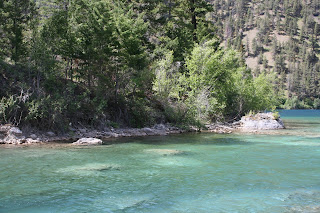Water is scarce in Peru - and getting scarcer. Climate change is melting glaciers in the Andes and therefore, worsening water woes.
Like the poles, the Andes are unusually sensitive to climate change, with areas above 12,000 feet expected to experience particularly strong rises in the mercury. In the last 25 years, average recorded temperatures on Antisana have already jumped by 1 degree Fahrenheit. http://www.globalpost.com/dispatch/news/regions/americas/120716/the-vanishing-andean-glaciers
This isn't the good news: please watch the video below.
Isn't that an innovative solution to water shortages?
Moreover, the Nature Conservancy is working to mitigate water shortages in the Andes. It
is supporting the creation of Aquafondo, the Lima Water Fund, together with Grupo GEA and the Fondo de Las Américas (FONDAM). Similar to the Quito and Bogotá water funds the Conservancy has helped establish in Ecuador and Colombia, the Lima Water Fund will use contributions from major water users in Lima to finance conservation projects that protect and restore the rivers and watersheds that the city depends on.One could donate to the Nature Conservancy to aid this work - no?
http://www.nature.org/ourinitiatives/regions/southamerica/peru/placesweprotect/limas-watersheds.xml
And we , especially in Kamloops, could use less water here at home.
Kamloopsians are the most profligate water uses in BC : reducing consumption would reduce pressure on our ecosystems. Just a thought ......
If humans consume more water than is
 naturally replenished in our ecosystem,
naturally replenished in our ecosystem,we are behaving unethically. What makes us the most
important species on the planet - except hubris?
What we do to others, we do to ourselves.


